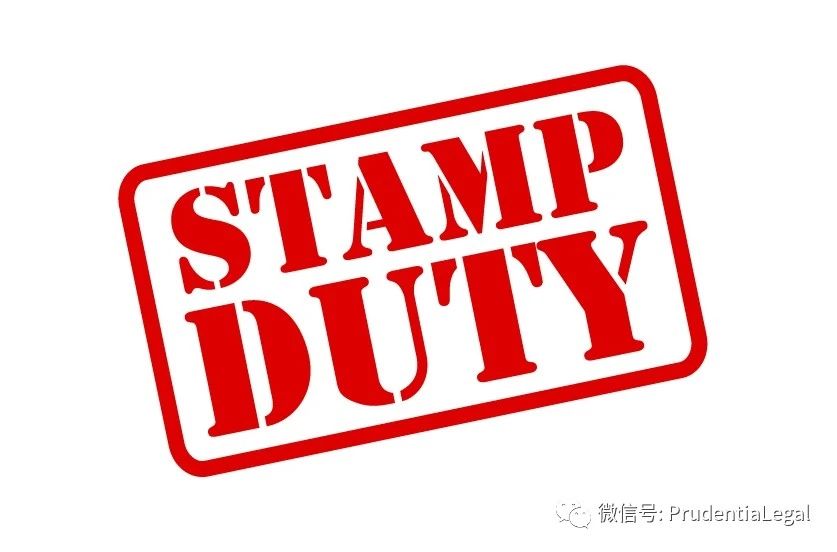New FIRB Approval Requirements Pausing Foreign Investment in Australia
Introduction
The Treasury has announced that the monetary threshold for foreign investment requiring approval from the Foreign Investment Review Board (FIRB) will be lowered to $0 from 10:30pm on 29 March 2020. The change will mean that all applicable foreign investment actions, no matter their monetary value, will require an approval from FIRB before they may proceed. The time to process the applications has also been extended from 30 days to 6 months. FIRB says that this extension does not necessarily mean that an application will take 6 months to arrive at a decision.
Duration of New Policy
Although the Treasury has stated that the new policies are temporary in nature, due to the rapid development of the coronavirus crisis, there is no expected date of the end of these new policies and it is unknown whether the government will have other economic measures after the crisis affecting their FIRB policy.
No Limitation on Business Sectors
It should be noted that the news release from the government did not limit the new policies to specific business sectors, hence the new policies will apply to all business sectors and all investments. Any investment in Australian companies or businesses by foreign entities or individuals may need approval from FIRB.
Purchase of Land
Residential Land
All purchases of residential land by foreign entities or individuals require FIRB approval under pre-existing rules. The processing time for applications for purchasing residential land is still expected to be 30 days. New purchasers and purchasers who have already signed the contract may need to check if the clauses related to FIRB in their contract of sale provides enough time for receiving FIRB approval. Purchasers will need to liaise with the vendor to ensure that the vendor will allow time for the FIRB application to come through and the purchaser will not need to be responsible for any delays.
Other Types of Land (Agricultural, Commercial…)
All purchases of Australian land and properties by foreign entities and individuals will require FIRB approval under the new policies. Purchases with value under the threshold previously would not require FIRB approval, but now that the threshold has been lowered to $0, all purchases will require approval.
Purchase of Company Shares/Business/Unit Trusts
The concepts of “significant action” and “notifiable action” are crucial to understanding the obligations to apply for FIRB approval. Significant actions need not notify FIRB, but if the Treasurer opines that a significant action affects the national interest, that significant action may be reversed or the assets acquired be required to be disposed. The acquisition of 20% or more of shareholding is a notifiable action and will require FIRB approval. As long as the acquisition leads to owning 20% or more of the company, FIRB approval is needed no matter the price of the acquisition.
Impact
Overseas Migration Clients
Clients requiring investment as a criterion in their visa application may be affected by the new FIRB policies. They will need to be aware of how the extended application times will affect their fulfilment of investment requirements.
Overseas Investment and Acquisitions
As the ownership structures of companies will be changed under such circumstances, such investment would require FIRB approval with specific attention paid to the definition of notifiable actions.
Property Investment by Overseas Persons
Investors from overseas will need to liaise with vendors to ensure contract clauses take into account the FIRB policies, such that the investor will not suffer loss or even have the contract cancelled due to needing more time for FIRB approval even when the processing time is expected to be same as before.
Q & A
Q: If commercial contracts have already been signed prior to the time when new policies come into effect, but shares and/or assets are not yet transferred, is FIRB approval needed under the new policies?
A: The new policies do not affect contracts and investment plans already executed before the effective date of the policies.
Q: For current FIRB applications in progress, will the processing time be affected by the new policies?
A: FIRB has stated that the processing time for current applications will also be extended to within 6 months, but it does not mean that an application necessarily takes 6 months to process. For applications to purchase residential properties, the application processing time is still expected to be within 30 days.
Q: Can foreign persons or entities establish new companies in Australia?
A: The new policies did not affect current rules on establishing new companies. Foreign persons or entities can still establish new companies in Australia for their operations.
Consequences of Contravention
If FIRB was not notified of notifiable actions or if other FIRB regulations are contravened, there may be criminal or civil sanctions, including imprisonment and fines.
Conclusion
We expect that the investment plans of many foreign entities and individuals will be affected by the new policies and such effects will be made known soon. Government policies in response to the coronavirus and economic crisis are expected to be updated frequently and the implementation of policies will be detailed once they are in place. Prudentia Legal will continue to follow updates in government policy and provide our analyses on the impact of such policies.
Relevant Links
News Release from the Treasurer:
https://ministers.treasury.gov.au/ministers/josh-frydenberg-2018/media-releases/changes-foreign-investment-framework
FIRB Q&A on the new rules:
https://firb.gov.au/qa-temporary-changes-foreign-investment-framework
FIRB Guidance Notes on monetary thresholds (Note information may require updates):
https://firb.gov.au/guidance-resources/guidance-notes/gn34
FIRB Guidance Notes on Significant Actions and Notifiable Actions:
https://firb.gov.au/guidance-resources/guidance-notes/gn35
Foreign Acquisitions and Takeovers Act 1975(as in force on 31 March 2020)
https://www.legislation.gov.au/Details/C2020C00023
Foreign Acquisitions and Takeovers Regulation 2015(as in force on 31 March 2020)
https://www.legislation.gov.au/Details/F2020C00157

Please note: The content of our publication is intended for general information purposes only, and should not be construed as legal advice on any matter. Please contact our firm for discussion of your particular circumstances.

相关内容
-
 详情
详情Avoiding Fraud – Importance of Legal Advice Illustrated by Two Cases
Avoiding Fraud– Importance of Legal Advice Illustrated by Two CasesPrudentia Legal: Edmund Leung2021-09-10Believing in the wrong person may lead to significant consequences, as once again demonstrated in recent cases in our firm. Sometimes mistakes may even compound on each other to rea
-
 详情
详情Temporary changes States have made to signing, witnessing or attending to documents
-
 详情
详情Employees or Contractors – A Discussion on New Developments for App Transport and Delivery Platforms
The gig economy has become everyday occurrence in the past decade. It has also developed in a way exceeding what may be originally envisioned. From the consumer’s perspective, the ease of on-call services for transport and food delivery alike has led to an explosion in demand, with many newcomers t
-
 详情
详情Summary of changes to the new VIC Residential Tenancy laws
The start date of the Residential Tenancies Amendment Act 2018 (the “ACT”) which outlines the framework of Residential Tenancy laws has been delayed due to coronavirus (COVID-19), with the amendments to be introduced by 29 March 2021, rather than the original 1 July 2020. The Residential Tenancies
-
 详情
详情Acting as Witness in Legal Proceedings
While direct involvement in criminal matters or civil litigation might not be that common for a person of the general public, it might well be possible that you have witnessed a crime or an event, and may be required to give evidence in court as a witness. What does being a witness entail? Speaking
-
 详情
详情Child Maintenance Trust
Division 6AA section 102 AG of the Income Tax Assessment Act 1997 (Cth) provides that a Child Maintenance or Child Support Trust (“CMT”) can be established following a relationship breakdown. Simply speaking, A CMT is a discretionary trust specifically set up to provide support for a child (or chi
-
 详情
详情Recent Changes to NSW Stamp Duty and Land Tax Policies
Stamp DutyThe New South Wales government has previously announced that they are introducing new legislation to increase the threshold amount for offering stamp duty exemption or reduction for first home buyers, such that purchasers of higher-priced properties may also benefit. This policy change has
-
 详情
详情House and Land Package – Some tips to share
House and Land Package – some tips to shareIntroductionIt’s noted the “house and land package” in the property market has maintained its popularity over the years. It’s difficult to find a brand new four-bedroom free-standing house within a 30 km radius from the Sydney CBD under $1 millio
-
 详情
详情New Australian Visa Policies Applicable to Hong Kong
The Prime Minister of Australia, the Honourable Scott Morrison MP, has announced yesterday that new visa policies and measures aimed to attract students and business talents from Hong Kong to Australia, and allow them to stay in Australia, will be offered to “Hong Kong passport holders”. It is not
-
 详情
详情Off-the-plan Stamp Duty Concessions in Victoria
The state of Victoria, specifically its capital Melbourne, has many high-rise and multi-occupancy residential developments completed and ongoing. Regeneration and redevelopment projects resulting in high-rise skyscrapers have dramatically changed Melbourne’s skyline in the past decade. Such multi-o
-
 详情
详情Intervention Orders In VIC
An individual (the applicant) (or police department but today we only talk about the individual application) may apply for an intervention order in the Magistrates Court of Victoria which places legal restrictions upon another individual (the respondent) and prohibits the respondent from engaging in
-
 详情
详情Preparation of Contract for the Sale and Purchase of Land in New South Wales
A contract for the sale and purchase of land (Contract) comprises three sections: The first being the substantive contract, usually the standard contract drafted by the Law Society of New South Wales and the Real Estate Institute of New South Wales, containing general conditions; the second being th